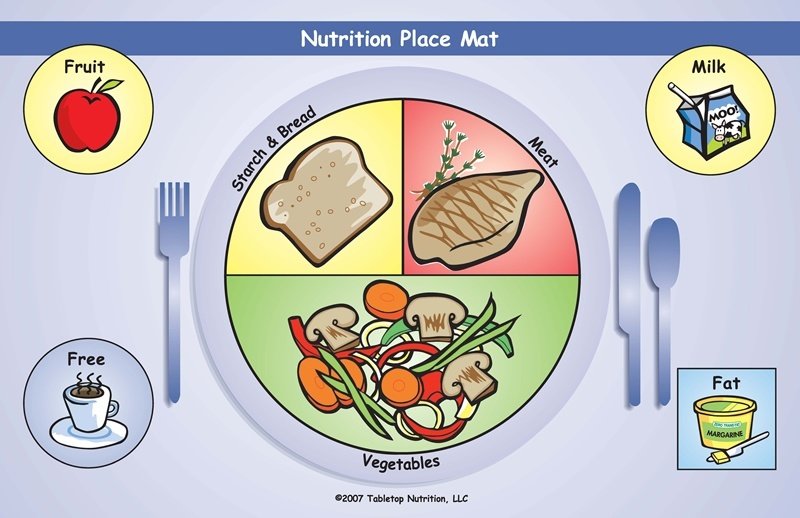Nutritional care for Diabetes

Introduction:
In this article I will discuss about that nutritional care for diabetes. Diabetes is usually such a type of condition that slowly explores on you other diseases dragging you slowly towards the death-hole. Diabetes is a very serious and chronic condition of high blood glucose level that after too much research and experimentations, it is still cure-less. Doctors have not said or disclosed anything about its cure. They only ask to control it properly through huge attention on your daily exercise and healthy diet plan. So, in this article, symptoms, causes, types and the care and control of diabetes will be
explained.| Nutritional care for Diabetes
Types of Diabetes:
There are three types of diabetes:
Type-1 diabetes
Type-2 diabetes
Gestational diabetes
But out of these, the most occurring type is type-2 that is mostly related to weight gain and insulin resistance. The most concern is about first two types and the discussion will be only about them.
Type-1 or insulin dependent diabetes(IDDM):
Type-1 diabetes is mostly related to the body’s condition when the B-cells of pancreas fail to produce insulin and there is the abnormal or less production of insulin to deal with the excessive glucose. Its is also known as juvenile diabetes. It accounts for about 10% of all diabetic cases. It is an autoimmune disease and is a condition of hyperglycemia.
Symptoms of type-1 diabetes mellitus:|Nutritional care for Diabetes
The high blood sugar produces the classical symptoms;
Polyuria (frequent urination)
Polydipsia (increased thirst)
Polyphagia (increased hunger)
Breath with smell of acetone
Lethargy and stupor
Weight loss
Nausea, vomiting
Abdominal pain
Hyper ventilation during breathing
How type-1 diabetes is controlled?
Type-1 or juvenile diabetes is generally controlled by the insulin injections or the extrinsic insulin input. As the body is unable to produce insulin so we have to supplement it from outside. Usually, the intake or supplementation of insulin enables the diabetic people to live an active life rather than a diseased one.
Type-2 diabetes or Non-insulin dependent diabetes(NIDDM):
Type 2 diabetes affects the way the body uses insulin. While the body still makes insulin, unlike in type I, the cells in the body do not respond to it as effectively as they once did. This is the most common type of diabetes, it has strong links with obesity. This type of diabetes also known as non- insulin dependent as there is no need of supplementation of insulin.
Causes of type-2 diabetes:|Nutritional care for Diabetes
Physical inactivity or genetic pre-deposition
being overweight
a family history of diabetes
having a high-density lipoprotein (HDL) cholesterol level lower than 40 mg/dL or 50 mg/dL
a history of high blood pressure
having gestational diabetes or giving birth to a child with a birth weight of more than 9 pounds
a history of polycystic ovary syndrome (PCOS)
being more than 45 years of age
having a sedentary lifestyle
How insulin resistance develops?|Nutritional care for Diabetes
Insulin resistance is usually a result of the following:
A person has genes or an environment that make it more likely that they are unable to make enough insulin to cover how much glucose they eat.
The body tries to make extra insulin to process the excess blood glucose.
The pancreas cannot keep up with the increased demands, and the excess blood sugar starts to circulate in the blood, causing damage.
Over time, insulin becomes less effective at introducing glucose to cells, and blood sugar levels continue to rise.
Exercise and diet tips to control type-2 diabetes:
The lifestyle changes should be made to support weight loss and overall health if type-2 diabetes develops. Such changes or
remedies include:|Nutritional care for Diabetes
Eating a diet high in fresh, nutritious foods, including whole grains, fruits, vegetables, proteins, low-fat and healthy fats sources, e.g nuts.
Avoiding high sugar foods that provide empty calories
Refraining from taking excessive amounts of alcohol
Engage yourself in a routine of 30 minutes exercise on at least five days of a week.
People can also reduce their BMI (body mass index) to control their weight and thus indirectly controlling their NIDDM.
Conclusion:
its diabetes can be controlled by your seek and guidance on your diet and healthy life style. It is a silent killer and cause many other diseases. you want to know diet plan that cure diabetes, then click on this link and read our article about diabetes.



























+ There are no comments
Add yours